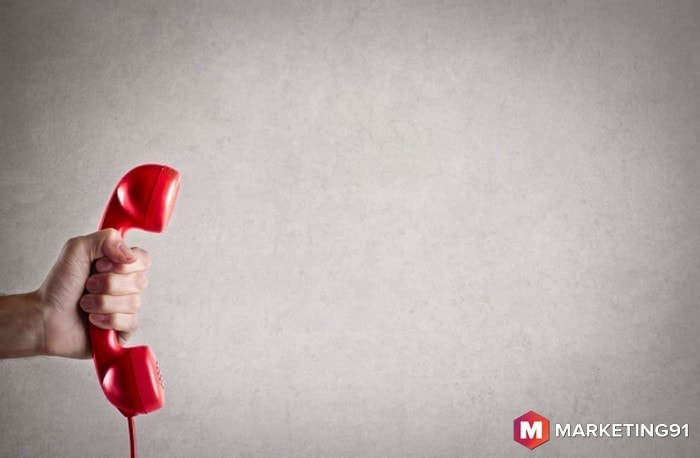Interviews are a part of the hiring process as it gives an in-depth impression of the applicant to the interviewer. It is vital to get the most out of an interview with the help of suitable questions and active listening to gauge the mood and behavioral pattern of the candidate.
The interviewer must personalize his interview technique in accordance to his industry and business entity so that he can take full advantage of the process to hire the best possible candidate for the job.
Work at your strengths and take the time to know about the various techniques so that you can finalize the one you think will be perfect for you and your company.
Table of Contents
Types Of Interview Techniques
There are numerous types of interview techniques to choose from. Some of them have been described below-
#1. Individual interview technique
One of the most popular interview techniques is face-to-face or individual interview technique. The length or duration of the interview is generally between thirty to ninety minutes. Candidates who manage to impress are the ones that take the longest time in an interview.
This is a golden opportunity for the interviewer as he can ask follow-up questions and look at the body language directly, whereas the interviewee gets ample time to frame his answers as per the situation.
The advantages of a telephonic interview are as follows
- It is easy to build a rapport with them one-on-one
- Assessing the abilities and mindset of an individual becomes easier
- The interviewer can ask follow-up questions and dig deeper
- It is easy to read the body language, flexibility, and commitment of a candidate with a face meet
The disadvantages of telephonic interview technique are as follows
- It is a time-consuming process and needs lots of additional effort
- The individual interview technique is inconsistent as well as expensive
- It is easy for the applicant to prepare answers for standard questions and repeat them during the interview
- The interview is fully dependent upon the whims of the interviewer and as there is no one to assess his performance he can be biased in his judgment
- If the interviewer is not trained, it can cause disaster for the interviewee
- The long duration can cause fatigue and result in mistakes by the interviewee
#2. Video interview technique
With technological advancements, more and more people are opting for video interview technique via FaceTime, Google Hangouts, and Skype.
It has proved an important alternative for both telephonic as well as individual interviews as it offers a two-in-one deal. The duration varies as per the individual but lasts no more than thirty minutes max.
The advantages are
- It is easy to set up
- Is less expensive than individual meet
- The effort is less compared to other interview techniques
- The video interview technique is perfect for long-distance applicants
- Eliminating weaker applicants becomes very easy at the onset
- The face-to-face meet offers the interviewer the chance to look at the expression and body language of the interviewee
- It is less expensive to conduct this type of interview
The disadvantages are
- Bad connection or signal can cause disruptions during the video call
#3. The telephone interview technique
One of the most cost-effective and time-saving ways to conduct a preliminary interview is via telephone devices. It helps to screen the applicants at the initial levels.
The telephonic interview lasts between periods of ten to thirty minutes and is generally handled like an oral examination during school days.
The interviewer, as well as the interviewee, should keep notes and various related information handy so that the question and answer session remains smooth.
The advantages of a telephonic interview are as follow
- It is easy to set up because you do not need a physical location to conduct the interview
- It is a time-saving process
- The telephonic interview helps to assess the conversational manner of a candidate
- You can eliminate the weaker candidates easily at the onset
- It takes comparatively less of an effort for this type of interview
- It becomes easy to reach a long-distance candidate
- The telephone interview technique is considered cost-efficient
The disadvantages of telephonic interview technique are as follows
- Disturbances in line can interrupt the call and break the tone and flow of the conversation
- It is impossible to read the body language of a person and gauge his expression and nuances via telephone
- Building rapport is not possible over the telephone
#4. Panel interview technique
An important type of interview technique is Panel interviews. It includes two or more than two interviewers during the process. Each interviewer focuses on some aspect of the interview and asks questions and related follow-ups to understand the applicant in a better way.
Panel interviews are generally conducted as last stage interviews and last for the duration of nearly forty-five minutes to one hour.
The advantages are
- There is a chance to make comparisons as you have different viewpoints at your disposal
- No scope for personal bias
- The relevant and decision making people are together to come to a decision instantly
- Even the interviewer gets the chance to impress relevant people at once
The disadvantages are
- It can prove overwhelming for the interviewer to face so many people at once on a single platform
- There is a greater chance of disagreement, and this can harm the chances of the interviewee
#5. Group interviews
In this type of interviews, a group is invited to take part so that everyone can have their say in front of others.
The advantages of group interview technique are
- It is easy to assess a wide and different range of skills, know-how, and knowledge
- The management gets the chance to see whether any individual is a team player or not
- It is a quicker method to eliminate applicants that fail to impress the interviewers
- All the candidates are called together thus saving ample time
- The technique encourages healthy competition amongst the candidates
The disadvantages are
- Sometimes the pressure gets to the applicant ad can ruin his chances
- The dominant players tend to overshadow the passive ones
- Some candidates work better on an individual basis and not during group activities
- The absence of any rapport between interviewer and interviewee
#6. Informational interview
This is a unique type of interview where the objective is to learn about a specific job, employer, or career. It involves interviewing an expert in a specific field to become occupationally literate.
The interviewer can ask for advice so that the knowledge can help him in the decision making the process. The contact and the information will prove a useful tool in developing the professional network of the interviewer.
#7. Committee interview technique
A committee interview is an interview technique where the interviewee has to meet and handle several decision-makers together on a single platform. It is necessary to prepare for this type of technique in advance as it can prove a challenge as well as intimidating.
The numerous interviewers are open to personal interpretations as their perception of the situation is varied. It is vital to take care of a few things during the interview, for example, establishing rapport on an individual basis and maintaining eye contact with the person you are speaking to.
The advantages are
- It proves a learning experience that will always be a help in later days
The disadvantages are
- It is an intimidating experience and can demoralize the interviewee if things do not go according to plan.
#8. The second interview
In most cases, the business entities call a selected group for a second interview so that they can know about the candidate thoroughly.
The length or duration of this type of interview is between half a day to a full day, and it includes three to five individuals who will conduct the interview, for instance, Human Resource personnel, supervisor, department head, etc.
It is important to know about the technique and steps of this type of interview as it can prove nerve-racking otherwise.
The advantages are
- If you can crack this interview the next step is the job appointment
The disadvantages are
- It is a very lengthy and time-consuming process
- In most cases, the fatigue gets to the interviewee, and he becomes prone to mistakes
#9. Behavioral interview technique
It is a widely used technique that involves the theory that past performance can predict future behavior. The questions are specially designed to probe previous experiences.
Instead of hypothetical questions, the interviewee will be bombarded with questions related to specific incidents in the past and how you handled them.
The questions are direct, for instance, tell me about the time when you had to face this problem? You will also have to be direct and recapture the past as truthfully as you can.
The interviewer will gather all the information and evaluate you on your technical abilities, creativity, problem-solving skills, motivational powers, administrative skills, communication skills, flexibility, teamwork, leadership qualities, and intellectual competence.
#10. Task-oriented interview technique
This type of interview technique involves giving out tasks to the applicants to gauge their analytical and creative abilities. Sometimes the applicant will have to face a test so that the interviewer can evaluate his technical skill and knowledge along with his communication skills.
The key is to relax and let your own abilities come to the forefront.
Liked this post? Check out the complete series on Interviews




